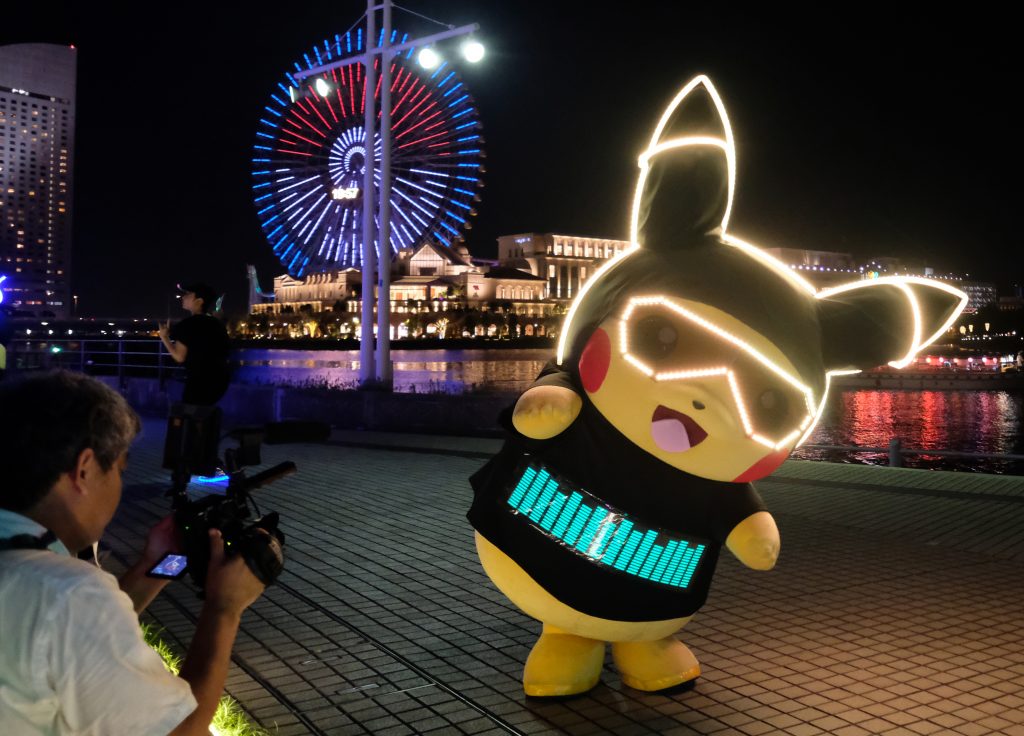
- ARAB NEWS
- 15 Jul 2025

Aseel Bashraheel Jeddah
Anime culture has always been huge in Saudi Arabia — and long before it became a worldwide phenomenon — but fans of the Japanese genre are hungry for more content.
Anime shops have proliferated in recent years not only in Riyadh and Jeddah, but also across smaller cities such as Khobar.
Maryam Al-Somali, a 25-year-old psychology major, wants these shops to lower their prices to make anime more affordable.
“More than that, I would love for actual Japanese suppliers to expand in the Kingdom. It might end up being just as expensive, but we’ll be sure that the products are originals,” she said.
Nora Al-Rifai, 28, started watching anime as a pre-teen with her older brother. Over the years, she has come across photos of anime-inspired cafes on the Internet that she wished to see more of in the Kingdom.
These cafes felt cozy and familiar to her, because they served pastries and beverages inspired by characters from classical animated series that Saudis grew up with.
From what she has witnessed across the country, anime shops and regular bookstores keep the manga sections limited to the corners or a few shelves. “I would like to see more publications and a bookstore dedicated to manga,” she said.
Anime and manga art books are almost non-existent here, said Al-Rifai. Art collections usually gather drafts made by the mangaka (manga artist) and animation studio, depicting background images and processes gone into making the final product. For some, these take pride of place in their collection.
“These art books further explain the stories and act as references for fans. They also help aspiring artists trace the works and develop their styles,” she said.
The demand is high, Al-Rifai said, adding that she and several of her friends have had to resort to online shopping to obtain their favorite manga volumes and art books, which can be costly.
The unavailability of manga in the country has also led many to resort to piracy or establish a “subbing” community in the Arab world.
These communities are comprised of people who are fluent enough in Japanese to be able to go through the raw material and translate the Japanese content for an Arabic audience.
Jeddah-based Rania Al-Ghamdi wants to see more anime studios established to obtain the rights for manga publications, making them available to Arabic readers.
With the current subbing being done by anonymous individuals on the internet, fans end up getting differently subbed material, and sometimes it is even inaccurate.
“I want to see more studios that sub and dub manga and anime, something that is professional and accurate and official, acting as a source for all fans,” she said.
Al-Somali, the psychology major, is also interested in seeing more manga cafes open shop, similar to the ones scattered across Japan.
Saudi authorities have no doubt about the enormous popularity of anime and manga in the country.
It began to recognize local manga artists by giving them space to sell their own merchandise at major events like Comic Con, and even organizing competitions for them to share their manga-inspired characters, rewarding those who come first.
Public experience was taken a notch higher when, as part of Riyadh Season, the first Anime Expo took place in the capital, attracting thousands of hardcore fans with gigantic set-ups of “Titans from Shingeki no Kyojin” (Attack on Titan), “Grendizer” and more.
The event was the first of its kind in the Middle East, featuring performances by a military uniform-clad band, Linked Horizon, who performed fervently for the fans of “Attack on Titan” and Japanese rock band Flow.
Japanese DJs such as Taku Takahashi, DJ MarGenal and DJ Kazu flew in all the way from Tokyo to play mash-ups of anime opening and credit songs while the crowd rocked to their favorite jams.
Al-Rifai was one of those who traveled from Jeddah to Riyadh to visit the Anime Expo. She found the museums dedicated to each anime there exceptional. She says she wants to see them replicated in future events.
“The ‘Attack on Titan’ museum was phenomenal and well-executed. Everyone was talking about it and the international media were praising it. Everyone wants to see more things of that scale,” she told Arab News.
Al-Ghamdi is eager to see more anime museums in Saudi Arabia. “A Studio Ghibli museum would be amazing,” she said, alluding to the concept behind the characters of Hayao Miyazaki, mastermind of many Saudis’ favorite animated films, “Spirited Away” and “Howl’s Moving Castle.”
With a lot of focus of these events pointed at cosplay activities and competitions, anime and manga fans want to see more products being made available, besides stationary and action figures.
“We struggle so much to complete a cosplay set, either by putting it together from scratch or ordering it online and hoping it’s the right fit,” she told Arab News.
“This could cut costs and sell very well if local stores began providing cosplays, and also anime-inspired fashion, especially gothic and avant-garde outfits that would be a hit with non-fans as well.”